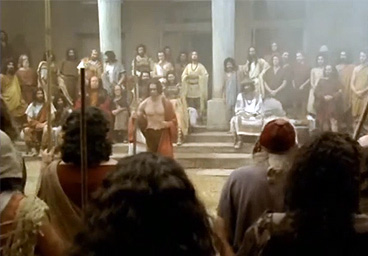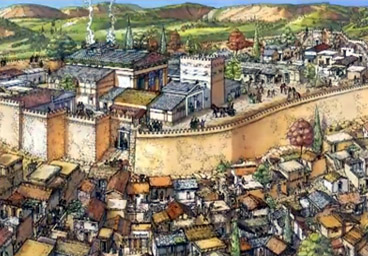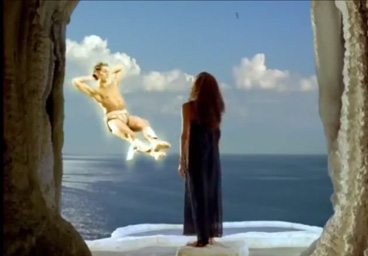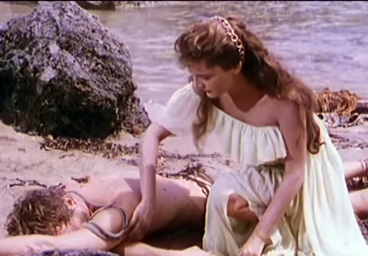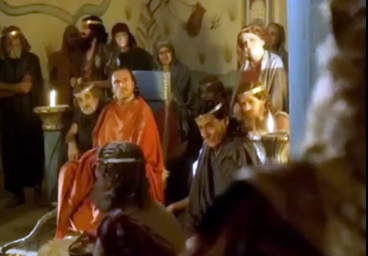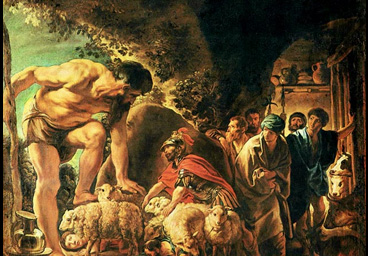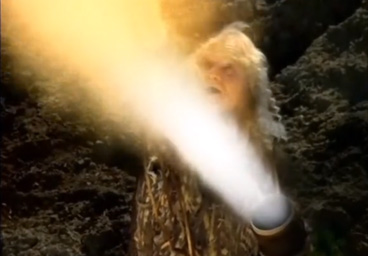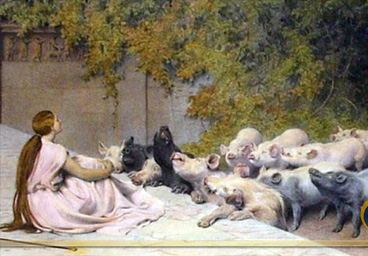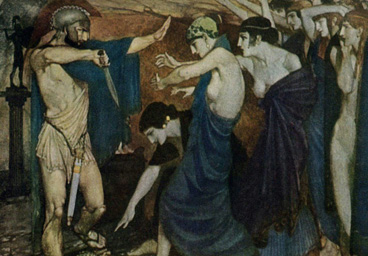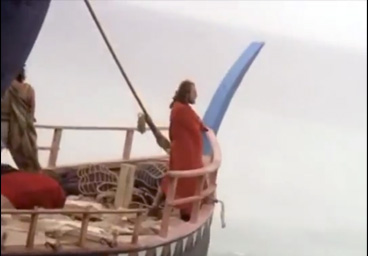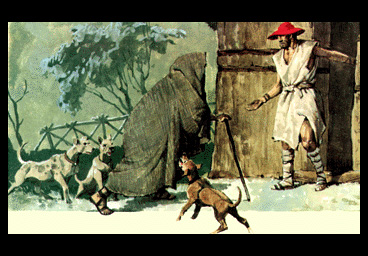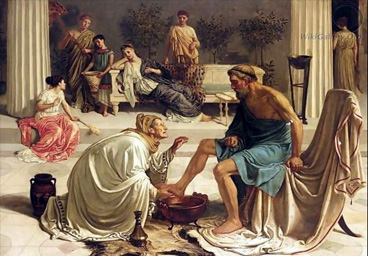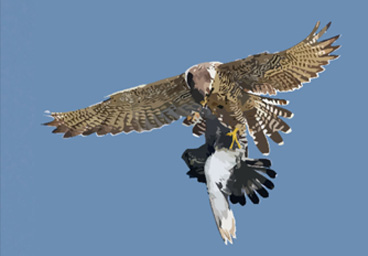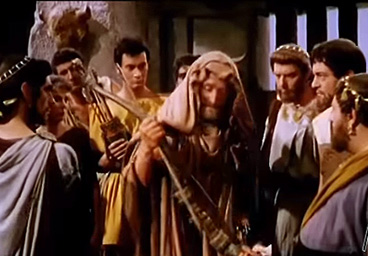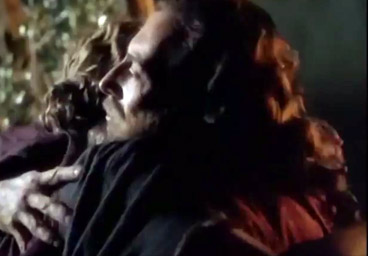RHAPSODY Η
Just before sunset, Odysseus arrived walking into the city. A young girl, who was actually Athena in disguise, guided him to the royal palace.
Entering the palace of Alcinous, he was impressed by the gold, copper and all the wealth that was in every corner. Odysseus entered the throne room, where the kings and other lords had just taken their dinner. Odysseus acted as Nausicaa had advised him, he approached Queen Aretis, and without addressing Alcinous, knelt down and respectfully touched her knees.
Odysseus begged Aretis, daughter of Rixinor, and she begged King Alcinous, as well as the rest of the Phaeacian lords, to help him return to his homeland. Then Alcinous raised Odysseus and brought him to the table to dine as the custom of hospitality commanded and asked him to confide his pain to them.
As soon as the dinner was over, Odysseus told Alcinous how he lost all his companions at sea and how he was shipwrecked alone as a survivor on the island of the fairy Calypso. There in Ogygia, the witch held him captive for years. In short he concluded how he arrived at the island of the Phaeacians where the kind-hearted princess Nausicaa helped him to his feet, to dress, and to reach the place where he was. Odysseus, however, avoided revealing his real name.
The king was impressed by the stranger's polite demeanor and nobility, even thinking that he might be someone of royal birth who could marry his daughter. Nevertheless, he respected the stranger's longing to return to his homeland and assured him that he would prepare a ship to take him back there, however far his country might be.
Odysseus' face calmed down and his heart lightened upon hearing that he would soon be back in his homeland.
RHASPODY Θ
The next day the goddess Athena took care, disguised as a herald, to call all the inhabitants to come to admire the noble stranger whom the Phaeacians as a people would help to return to his homeland.
Alcinous and Odysseus appeared in the market of the city and the goddess Athena gave Odysseus an even more radiant and heroic body. They then returned to the palace to have their meal, where the aedic Demodocus began to sing about the Trojan War. With its melodic purpose, it glorified the epic battles of the Achaean heroes, Achilles, Agamemnon and Odysseus.
Odysseus had difficulty hiding his tears, which Alcinous noticed but did not show. Later, he organized games in honor of the city's guest. So the market was filled with visitors and athletes from the outskirts of the kingdom, to compete.
In fact, the discus thrower named Laodamas challenged Odysseus to a discus throw. Odysseus politely refused at first, but when challenged by the athlete Euryalos, he decided to try throwing the discus as well. Odysseus deftly held the bronze disk and, showing experience in the sport, swung it with momentum, easily sending it crashing onto a rock well outside the marketplace, raising shouts of excitement and admiration from the onlookers.
Alkinos, admiring the nobility and nobility of the guest, thought that he could be a lord or even a king, who would perhaps marry his daughter. But respecting the stranger's wishes, he announced to him that a crew of Phaeacians would soon be ready to take him back to his distant homeland.
With the end of the games, the dinner table was again prepared in the palace where it was filled with lords who hastened to see and honor the stranger. Now Demodocus chose to sing the heroic exploits of Odysseus in Troy who, with the trick of the Trojan Horse, managed to sack the city with the rest of the Achaeans. Odysseus this time too could not hide his emotion.
This time Alkinos stopped Demodocus and looked at Odysseus. She asked him what his name was and why Demodocus' song about Troy brought him grief. Did he have a dear friend or brother who was lost in that war?

